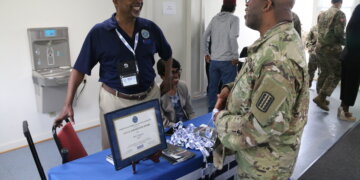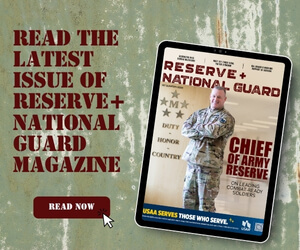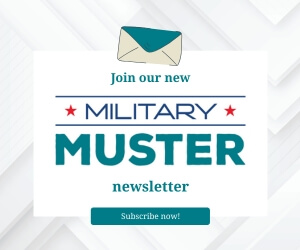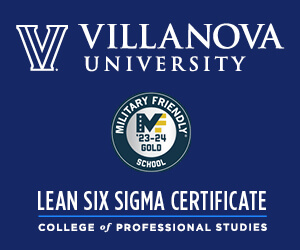The National Guard recruitment office was the last place Lacey Perry expected to be. When she walked through the doors 12 years ago, even the guardsman working that day was taken aback by her visit.
“I said, ‘I’m looking for a recruiter,’ and he goes, ‘For your son?’ and I said, ‘No, for me,'” Perry laughed.
She was 30, older than most of the other recruits, and she hadn’t considered enlisting until she met her husband.
His service to the Air National Guard had brought him to her home state of Arizona and witnessing the passion he had for his career piqued her interest.
“I saw all of the great things he was doing, and I thought, you know, I want something that’s special too,” she said.
At the time, she worked for the local county government’s parks and recreation department, a job she’d kept for nearly 15 years. She was aware enlisting would come with education benefits, but she didn’t think much about them as she’d already received a bachelor’s degree.
Perry enlisted as an intelligence analyst for the 162nd Wing at Morris Air National Guard Base. In 2014, after 11 months of training, she was commissioned as a public affairs officer. She originally intended to return to work for the county but couldn’t pass up an opportunity she received to work for the Arizona Air National Guard full-time.
An unexpected career twist with education benefits
Eight years into working for the Arizona Air National Guard, opportunity knocked again. This time, it came as an email about a market executive opening with Bank of America in Tucson from a mutual contact.
“The president of Bank of America actually sent me the job description and said, ‘You may know someone who has these qualifications.’ I looked at the job description and thought, ‘I have those qualifications! I can apply and see what happens.'”
The thought of working for corporate America made Perry feel “pretty nervous and a little bit scared,” but she nailed the interview and got the job.
RELATED: Technical, trade school certifications make service members ‘more valuable’
“On a Sunday afternoon, I changed from my uniform to business clothes and hopped on a plane where I started with the bank in Philadelphia at a high-level conference,” she said. “I went right into the frying pan with meeting people and really being introduced to the culture. I think it really just excited me, and it motivated me and inspired me that I had made the right choice.”
The surprise education benefits of going corporate
Most people are aware military service comes with potential educational benefits. However, the perks of working for corporate America aren’t always as obvious. According to a survey from global management consulting firm McKinsey & Company, 30% of employers offer education or training outside the workplace, but only 12% of employees know what benefits they can receive through jobs.
Perry admitted when she started at Bank of America in 2018, she was surprised to learn the company had its own tuition-assistance program as an education benefit. Bank of America provides $7,500 per year for learning and career development through tuition assistance. Most of that is tax-free, as the Internal Revenue Service allows private companies to provide up to $5,250 in non-wage educational assistance to their employees each year, as long as it’s related to an employee’s position with the company.
Although the stresses of raising two children, working a full-time job and serving in the Air National Guard were overwhelming, Perry saw an opportunity to go after a recent goal of further education when the COVID-19 pandemic shut things down in early 2020.
She enrolled in the Master of Organizational Management Program at Northern Arizona University and completed her coursework this spring.
The best of both worlds
With a bachelor’s and master’s degree under her belt, Perry has chosen to give her Post-9/11 GI benefits to her 9-year-old daughter. It’s a perk she didn’t anticipate when she walked into the recruiting office all those years ago. Her husband plans to give his to their youngest child.
“To me, it is so thrilling, the thought that she’s going to be able to go to school and not have the weight of student loan debt or have to take on a full-time job to be able to attend school,” Perry said. “She is going to be able to have the freedom to choose her career [and] to go to the college that she wants to.”
Perry believes the biggest hurdle that keeps guardsmen from maximizing their education benefits is simply awareness.
“You are your own advocate, and you can blaze your own path of being able to research the benefits available to you, both on the military and the civilian sides,” she said. “I think a lot of times, it’s just the absence of knowledge of what is possible that kind of holds people back. Make sure you’re taking advantage of opportunities for mentorship, volunteerism and networking – the power of networking is super important and making those connections and knowledge can’t be understated.”
She credits her success to the support of her leaders in both roles. Currently a captain, Perry plans on using her new education to continue progressing in the military and the workplace. Her next goal is to be promoted to the rank of major with the Arizona Air National Guard.
“(Education) has really broadened my knowledge on a lot of the topics especially relating to corporations and what’s important about project management and strategic planning, some of the things that I haven’t encountered in the military,” she said. “I intend to take that knowledge and apply it both on my military and civilian career sides.”








































